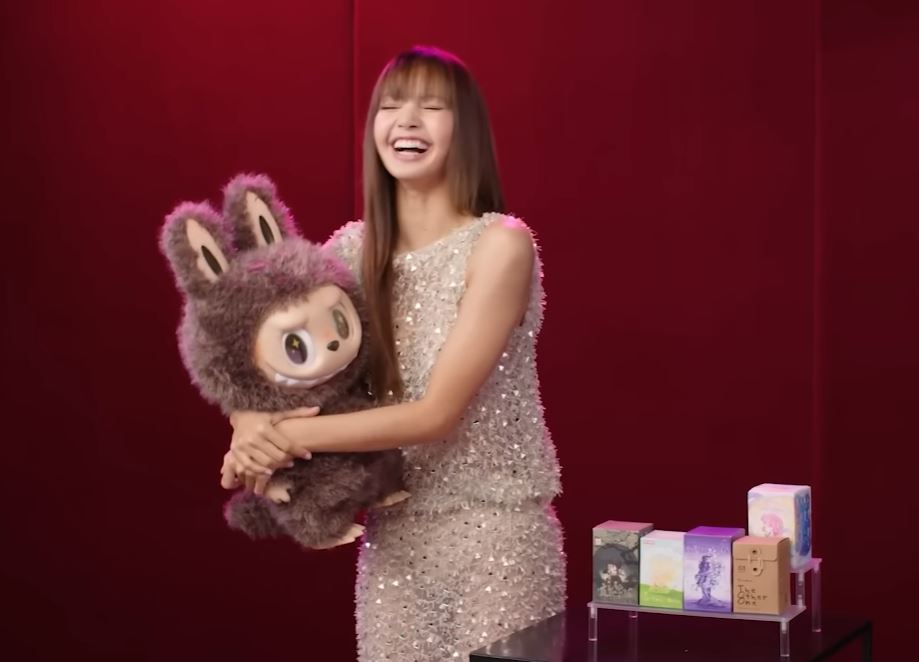Labubu, a $25 toy, unexpectedly became the hottest fashion accessory of 2025. Fans rioted to obtain one, resellers flipped them for thousands, and celebrities from Lisa to Rihanna and Dua Lipa showcased their own Labubu figures. This surge did not happen by accident. Labubu’s ascent followed a deliberate four-part viral marketing cycle that propelled PopMart, the once little-known Chinese toy company, into a $40 billion powerhouse—surpassing Hasbro and Mattel combined. The following analysis reveals the strategic marketing maneuvers that led to Labubu's global rise and the lessons learned from its viral journey.

The Power of the Blind Box Scarcity Strategy
PopMart’s marketing machine was ignited by scarcity. Labubu came packaged in blind boxes, a clever approach inspired by the tactics behind Pokémon cards and LOL Surprise dolls. Buyers never knew which figure they would receive. Most were common, but every series contained a rare “secret” Labubu, exponentially more valuable and sought after. This fueled repeat purchases as fans chased the elusive figures, creating a viral loop driven by anticipation and scarcity.
In the era of social media, every unboxing became content. Fans filmed their reveals, displayed rare shelves, and celebrated discovering secrets. This digital amplification further accelerated Labubu’s popularity. By the time PopMart went public, Labubu was the best seller, prompting the company to launch new stores across Asia and prepare for global expansion.
| Marketing Tactic | Description | Result |
|---|---|---|
| Blind Box Packaging | Randomized selection with rare “secret” figures | Repeat purchases, viral anticipation |
| Social Content | Unboxing videos, sharing rare finds | Online engagement and viral reach |
| Retail Expansion | New stores in Asia | Set stage for global growth |
The Social Proof Cascade and Celebrity Spark
A turning point arrived in early 2024. Labubu was selling well, and the blind box trend was spreading internationally. The momentum accelerated when Lisa of Blackpink, a global pop icon, posted an Instagram photo with a Labubu charm on her bag. Within hours, Google searches from her home country surged, and hundreds of thousands of fans visited PopMart’s website, eager to emulate their idol.
This is the phenomenon of a social proof cascade: when actions by high-status figures make a product instantly desirable. Labubu rapidly became a symbol of being in the “in” crowd. Lisa’s post was the spark that set Labubu ablaze across Asia, but PopMart sought to expand further.
Creating Experiences and Global FOMO
PopMart elevated Labubu from a product to an experience. After Lisa’s post brought global attention, PopMart did not settle for online hype. In July 2024, the company launched pop-up events worldwide, including a four-day takeover in Bangkok with a life-sized Labubu mascot. Soon after, a flagship store opened in Paris’s Louvre Mall, with exclusive Labubu figures marking the launch.
Fans lined up for hours to secure first-day releases. These physical events turned the act of buying Labubu into a social event, further amplifying FOMO (Fear of Missing Out). By February 2025, celebrities such as Rihanna, Dua Lipa, and Lizzo were seen with Labubu, and the toy appeared at Paris Fashion Week. The marketing loop was complete—online buzz fueled real-world gatherings, which in turn generated more online content, embedding every fan into the marketing machine.
| Event | Location | Impact |
|---|---|---|
| Pop-up Launches | Global (Bangkok, Paris, etc.) | Exclusive drops, media coverage |
| Celebrity Sightings | Fashion Weeks, social media | Social status, aspirational branding |
| App & Auction | US App Store, global auctions | App #1, $170,000 statue sale |
The Downturn as Hype Fades
As Labubu became mainstream, the very principles that powered its rise began to work against it. Scarcity faded as production scaled and replicas flooded the market. Celebrities moved on, and FOMO diminished. Interest declined even in Google’s AI overviews, with searches and demand dropping rapidly.
In September, PopMart's share price slumped after a downbeat assessment, wiping out nearly a quarter of the company's value and raising questions among investors. The cycle was clear—what begins as exclusive and rare inevitably loses its viral edge as it becomes ubiquitous.
$40B
PopMart's market value at its peak, exceeding Hasbro and Mattel combined
Lessons from Labubu's Viral Cycle
Labubu’s journey demonstrates how scarcity, social proof, and FOMO can generate a billion-dollar brand almost overnight. Yet, its inevitable slowdown is a reminder that hype has a short lifespan. The most resilient companies are not those that ride a single viral wave, but those that continue to build products and foster lasting connections with their audience.
Whether PopMart will sustain its momentum or fade remains to be seen. The Labubu case offers powerful insights for marketers on the mechanics of virality and the importance of evolving beyond trend-driven success.
